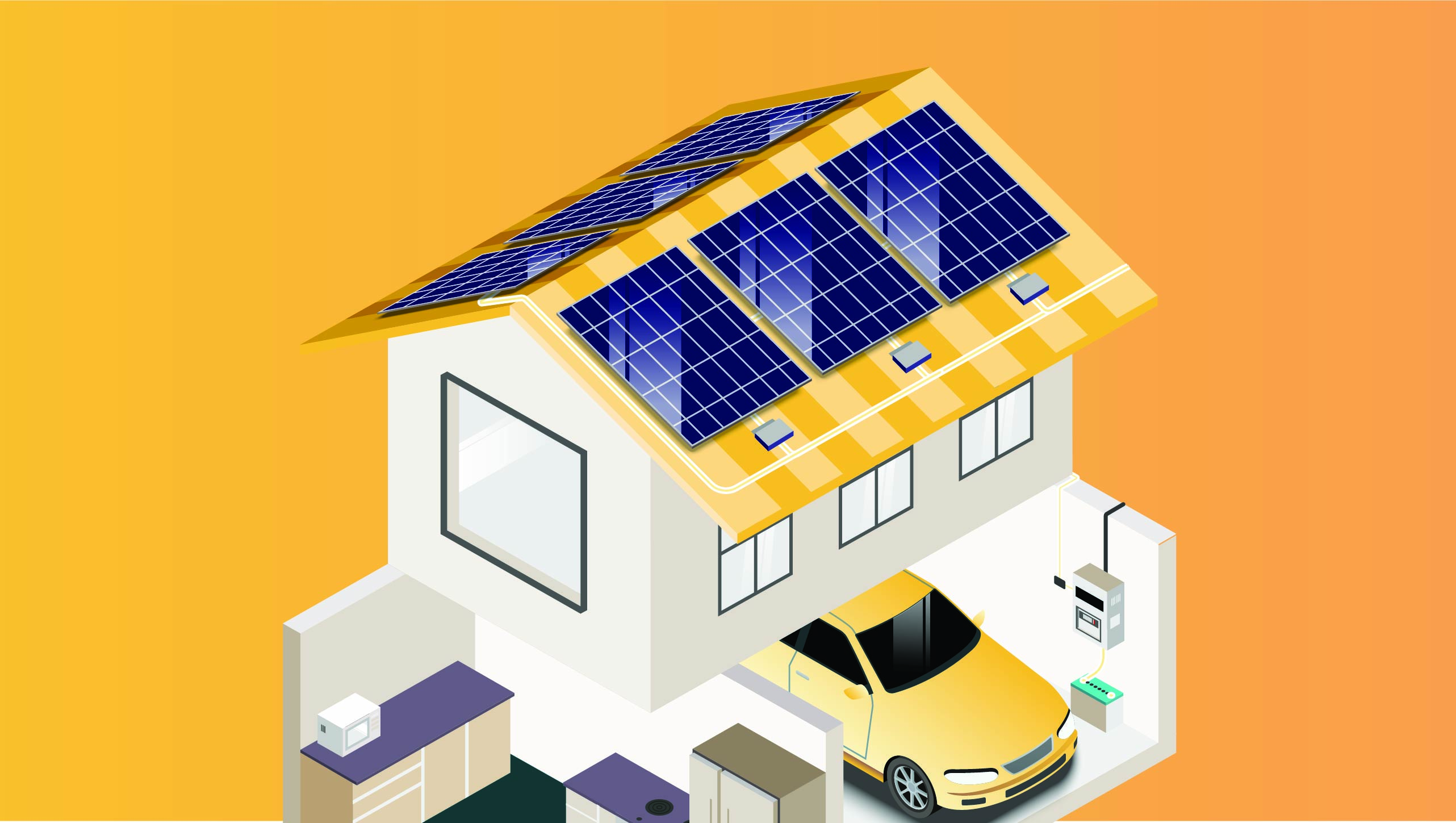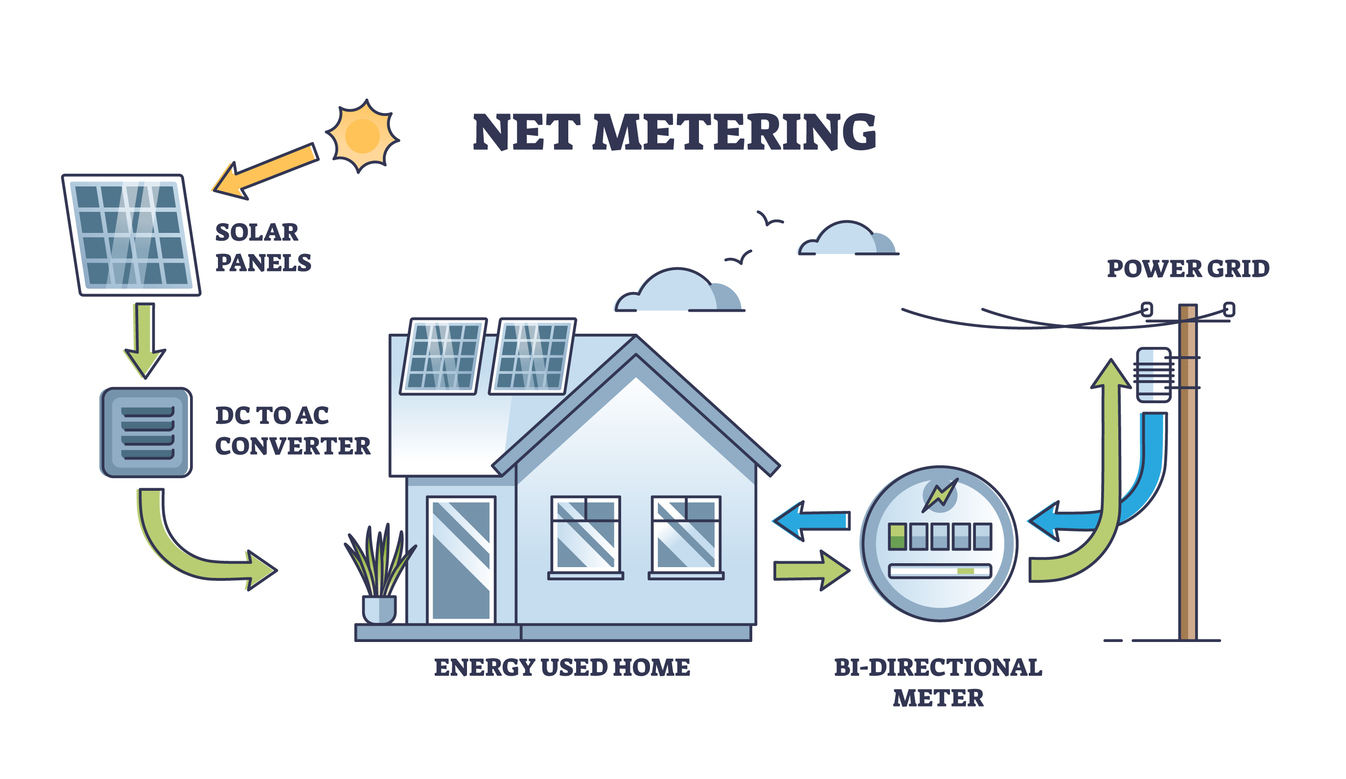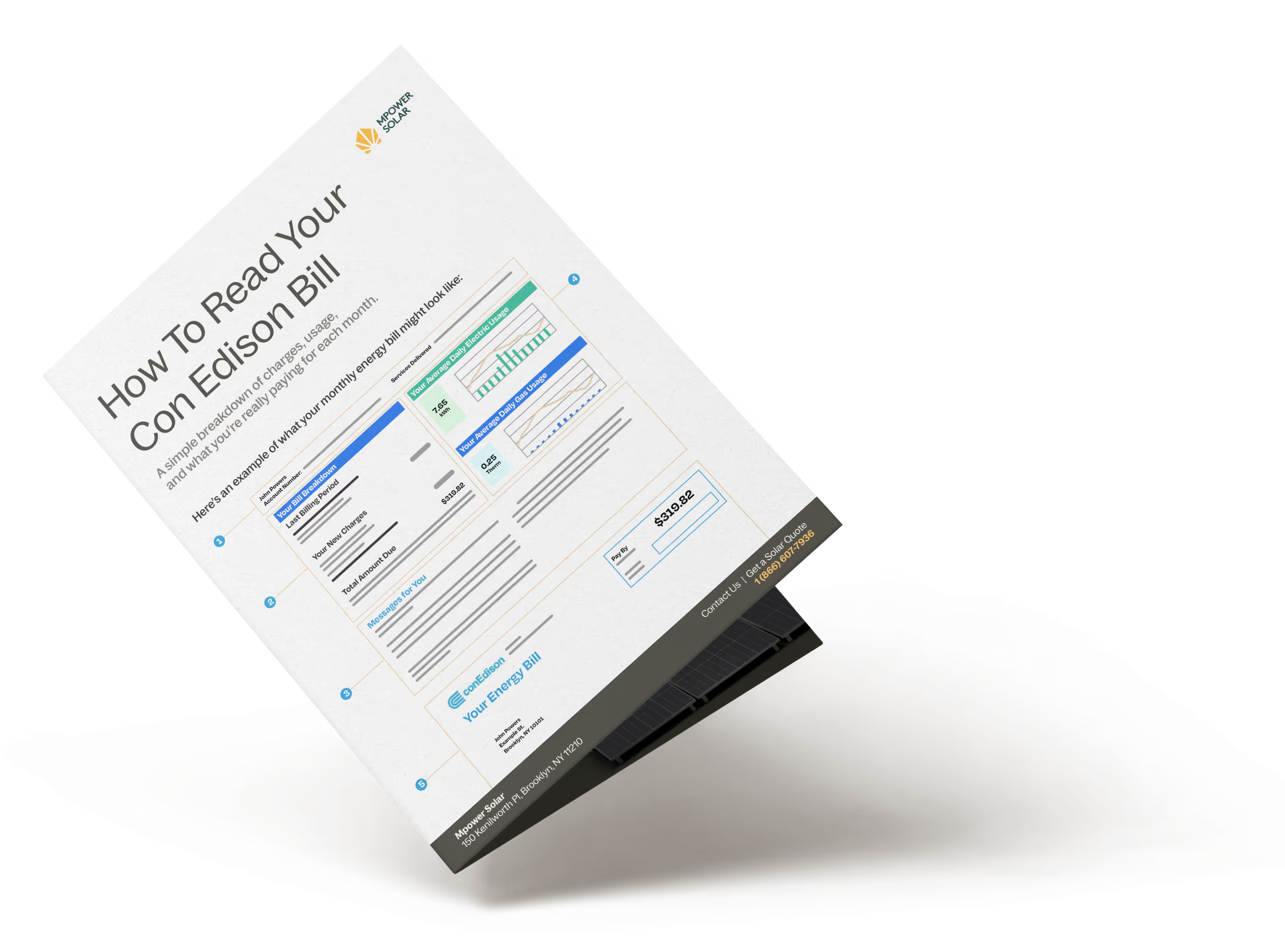Let's get you powered up
Solar incentives in NYC won’t last forever—now’s the time to make the switch. Reach out for a quick, custom quote and see how much you could save.

Ever wonder how solar panels actually turn sunlight into electricity? Or if your home can run completely on solar power?
If so, you’re in the right place. This article breaks it all down—how solar energy works and what happens to excess power.
Here’s the science—made simple! Solar panels work through the photovoltaic effect, discovered in 1839 by a French physicist named Edmond Becquerel. He found that certain materials could produce an electric current when exposed to light. But the real breakthrough came in 1954 when scientists at Bell Labs created the first practical silicon solar cell.
Solar panels produce energy by using photovoltaic cells to convert sunlight directly into electricity through a process called the photoelectric effect.
When sunlight hits a solar panel, it knocks electrons loose in the solar cells, creating an electric current. This electricity flows through an inverter, which converts it from direct current (DC) to alternating current (AC)—the type of electricity that powers many homes all over the world!

Yes! A house can absolutely run completely on solar power—with the right setup. In fact, countries like Germany and Australia have times when solar power meets a huge percentage of their energy needs.
But it’s not just homes—commercial buildings, electric cars, and even entire towns can be powered by solar energy!
And here’s the key: If you want to run your home 100 percent on solar, you’ll either need a solar battery to store excess energy for nighttime or to be connected to the grid with net metering, which lets you send unused energy back for credits.

If your solar panels produce more electricity than you use, that energy doesn’t just disappear. However, the energy storage depends on your location and local regulations.
Many solar customers have solar batteries as part of their system, these store extra energy so you can use it at night or on cloudy days. Brands like Tesla Powerwall and Enphase are leading the way here. But, in places like New York City, where we operate, batteries aren’t permitted in residential properties due to local building and fire codes.
Therefore, solar customers in NYC are part of a system called net metering. With net metering, any excess power generated by your solar system gets sent back to the grid, and you earn credits that lower your electricity bill. Think of it like rollover minutes for your power!
Then, in times like the winter when there’s less sunlight, you can easily use the credits you’ve earned from excess production during sunnier months.
So, no energy goes to waste—it either gets stored for later or sent back for savings.

Solar panels work even on cloudy, rainy, or snowy days! On a cloudy day, solar panels generate at a lower rate, typically 10-25 percent of their full capacity. But that doesn’t mean that you won’t have energy!
Depending on your location and solar system (whether you have a solar battery or are part of net metering), you will either have stored the extra energy or earned extra credits from excess production during sunnier days, so you can use it at night or during any poor weather.
The truth is—there isn’t one! A good solar installer will be completely transparent about your costs, incentives, and potential savings.
In fact, installing solar is not only good for the planet, but it also makes financial sense. For instance, Dorcelis, one of our customers based in Brooklyn, New York, chose to go solar with us because he will be able to save 81,000 dollars over 25 years!
Ready to take the solar leap? Get a quote today!
Inside you'll discover:

Solar incentives in NYC won’t last forever—now’s the time to make the switch. Reach out for a quick, custom quote and see how much you could save.